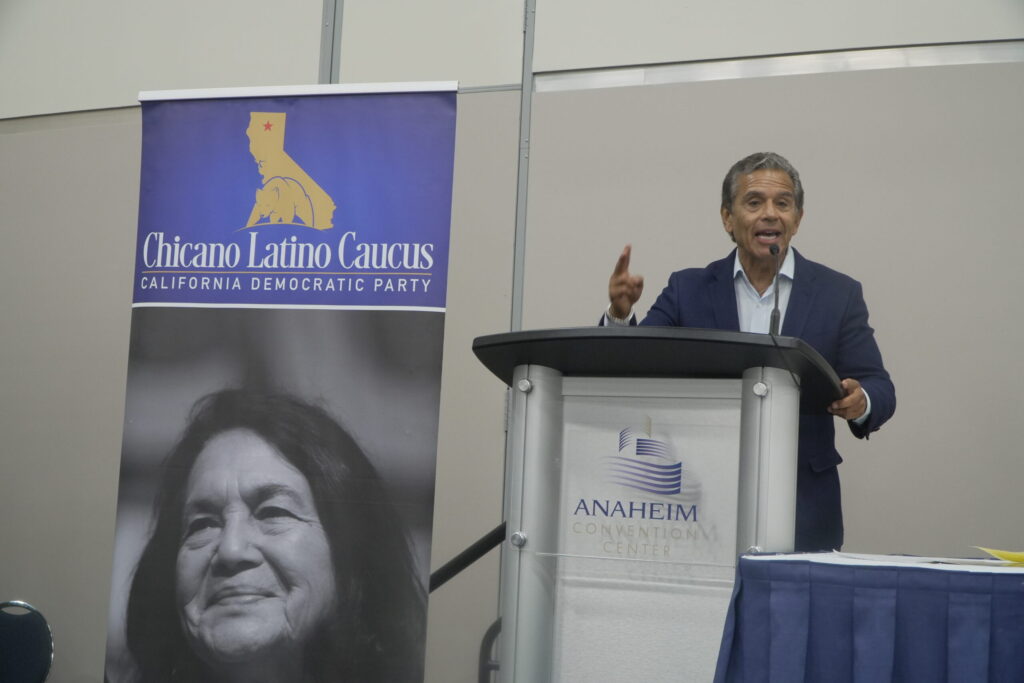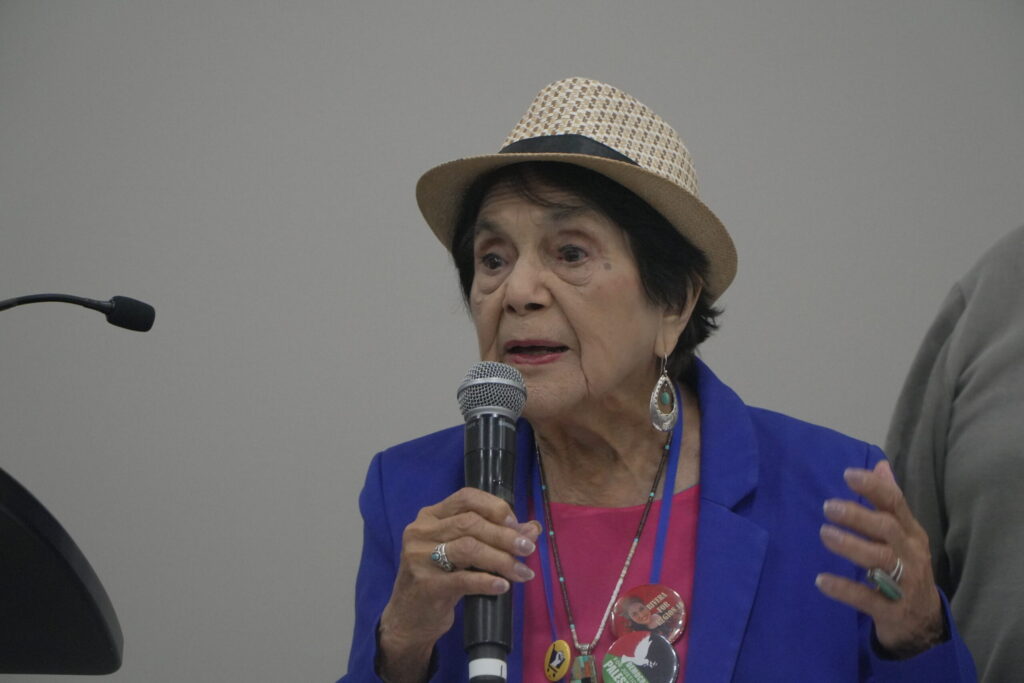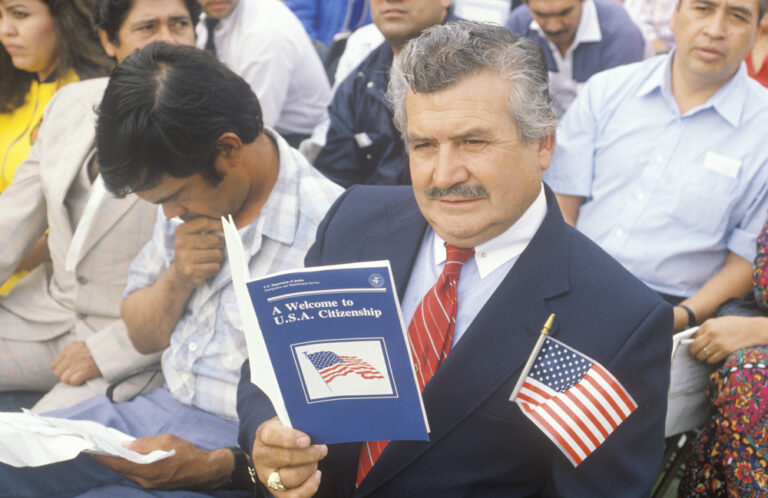By Irvis Orozco
(Anaheim, CA) — From May 30 to June 1, 2025, California Democrats gathered at the Anaheim Convention Center for their annual state convention. Over the three-day event, more than 3000 delegates and activists came together to strategize on how to win back Congress in 2026, address key issues like the economy, housing, and immigration, and push back against President Trump’s policies.
The weekend also spotlighted Latino leadership—both rising and established voices—and laid out a roadmap for reclaiming both Congress and the White House, including economic development and protecting immigrants.
Latino Leadership Takes Center Stage
Two prominent Latino candidates—former U.S. Health and Human Services Secretary Xavier Becerra and former Los Angeles Mayor Antonio Villaraigosa—are vying to become California’s next governor; they used the convention to seek support from Democratic delegates.

They were joined on stage by other high-profile gubernatorial contenders, including former State Senate President Pro Tem Toni Atkins, former State Controller Betty Yee, former Congresswoman Katie Porter, and Lieutenant Governor Eleni Kounalakis—all presenting their vision for California’s future as they campaign for the party’s nomination.
Xavier Becerra, the former California Attorney General (2017–2021) and U.S. Secretary of Health and Human Services (2021–2025) under the Biden Administration, told Informador that affordability issues in California, particularly for the Latino community, are what will strengthen the state. “We want to be able to afford where we live. We want to be able to afford to send our kids to college. We want to be able to buy that house.” Becerra believes that building more homes and using that economic drive is what will make California succeed.

Former Los Angeles Mayor (2005–2013), and former Speaker of the California Assembly (1998–2000) Antonio Villaraigosa spoke about his leadership defending the rights of immigrants and his budgeting skills.
Villaraigosa spoke to Informador about his reduction of violent crimes by 50% and his increase of graduation rates while mayor. “I’ve been speaker of the California State Assembly, where I balanced two budgets, expanded health care to kids and the Healthy Families Program, and focused on our community, but focused on uniting us,” Villaraigosa explained.
The strategy he sees for California is to build more housing. “We got to grow not just affordable housing and housing for homeless, but market rate.” He added that California needs to build more infrastructure and transmission lines. “
Latino Caucus Energized with New Voices

Under the banner “La Nueva Voz,” California Democrats ushered in new leadership within the Latino Caucus; Nilza Serrano was elected chair, toppling a decade-long incumbent. Nearly a dozen newcomers secured key positions, reflecting frustration with past outreach efforts and the need to better mobilize Latino and young voters.
Labor leader and civil rights icon Dolores Huerta spoke in several sessions, invoking her legendary “Sí, se puede” spirit. She tied farmworker justice and immigrant rights to the broader fight for economic equity and inclusive governance.
Strategy
Focus was on immigration, with calls for a federal overhaul centered on DACA protections, humane asylum practices, family reunification, and a pathway to citizenship; and the economy, where sessions examined wage fairness, union strength, and economic mobility—especially in Latino and working-class communities.
The Democratic strategy hinges on mobilizing Latino and younger voters around shared priorities such as immigration reform, housing, jobs, and equity; building from the ground up through investing in local organizing, precinct-level canvassing, bilingual outreach, and digital engagement; and presenting a cohesive progressive agenda that delivers tangible results and empowers working families across the state.
The Path Ahead
The convention closed with calls from California leaders—and even out-of-state allies—to harvest this momentum across the state. Delegates were urged to volunteer, mobilize, and sustain engagement beyond Anaheim, in preparation for crucial midterms and beyond.
Yet, as the party tries to win back key positions nationwide, a large portion of progressives feel not heard on key issues by leadership.
Andrea Luna Bocanegra, a teacher from Oakland, was one of 150 voters whose ballots weren’t counted in the party’s caucuses. She criticized Democrats for failing to protect immigrants, including during the Obama administration when she believes undocumented people should have been granted citizenship. “The undocumented community contributes US$97 billion to Social Security they’ll never collect,” she said. “They pay income, sales and property taxes, but get none of the benefits.” She called the situation a frustration that needs to be acknowledged.
Lisa DeCari, a teacher from San Jose, spoke about the party not listening to progressive voters on issues such as stopping funding to Israel and allowing the creation of a Palestinian caucus. “I do strongly believe that the Democrats not being willing to face this issue of Palestine is what lost the election.”
The 2025 California Democratic Convention served as a turning point for Latino representation and strategy. With a rejuvenated Latino Caucus, the party is shaping a powerful blueprint: bold policy, community empowerment, and deliberate mobilization aimed at reclaiming federal power and securing progressive wins statewide.




